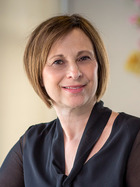Q. My mother recently passed away from cancer and people are telling me to join a group. I'm not sure what type, but thought I'd ask to see what is out there. I’m 37. Thanks!
The death of a loved one can be one of the most difficult experiences in life. Bereavement can be even harder if you are a young adult (21 to 39 years old). It can make you feel very alone because you might find that none of your peers have gone through anything similar and won’t understand or know what to say. Being with others who have similar experiences and who do understand what you are going through can be vital at this time.
Bereavement support groups can decrease feelings of isolation and loneliness and provide a safe space to process feelings of grief and loss. Group members not only support each other by validating and normalizing their experiences and emotions but they can learn coping skills from each other. The opportunity to share your narrative and be able to grieve openly helps to start the journey to recover.
However, everyone grieves differently and therefore there is not one way to cope with the death of a loved one. Support groups can be very helpful, but might not speak to everyone. If this does not work for you, individual bereavement counseling could be more appropriate during this time.
There are no rules in the recovery of bereavement and only you will know what works for you.
Support groups are available at CancerCare and are led by oncology social workers. View CancerCare’s support groups, which include a Young Adults Who Have Lost a Loved One Online Support Group.
CancerCare also offers publications on bereavement.
And finally, here is additional information about coping with loss.

 Answered by
Answered by